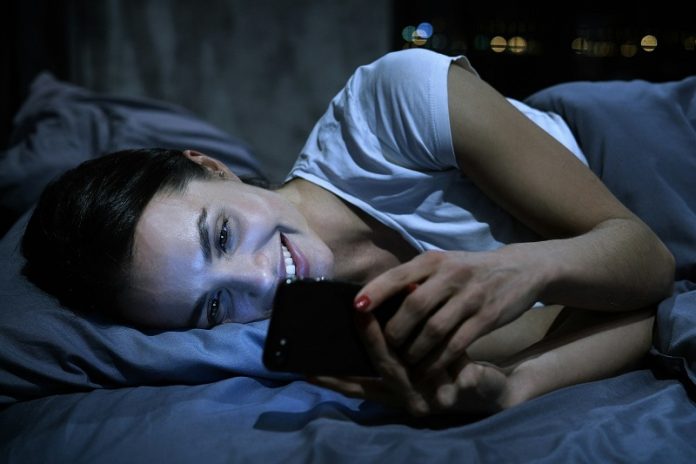
A new study has found that using your phone, tablet, or computer in bed could seriously harm your sleep.
Norwegian scientists discovered that just one extra hour of screen use after going to bed increases the risk of insomnia by 59% and reduces total sleep by around 24 minutes.
And surprisingly, it doesn’t really matter what you’re doing on the screen—whether you’re watching a movie, scrolling through social media, or even reading study materials.
Dr. Gunnhild Johnsen Hjetland from the Norwegian Institute of Public Health led the study, which was published in the journal Frontiers in Psychiatry.
She explained, “It’s not about the type of screen activity, but the total time spent using screens in bed that affects sleep.”
This study looked at over 45,000 young adults, aged 18 to 28, who were studying full-time in Norway.
The researchers used data from the 2022 Students’ Health and Well-being survey, a national survey that asked students about their screen habits and sleep quality.
Participants reported whether they used screens after going to bed, for how long, and what they were doing.
Options included watching videos, gaming, browsing the internet, using social media, listening to audio, or studying.
They also shared details about when they went to bed and woke up, how long it took to fall asleep, and whether they had problems staying asleep or feeling sleepy during the day.
The researchers grouped the responses into three categories: people who only used social media, people who did not use social media, and people who used a mix of screen activities including social media. They found that no matter what people were doing on their screens, more screen time was linked to worse sleep.
The study suggested that screen use likely reduces sleep by replacing time that could be spent resting. Interestingly, the type of activity didn’t seem to matter much—social media wasn’t worse than other screen use, even though it’s often thought to be more stimulating.
Why does screen time before bed hurt sleep? There are a few possible reasons:
- Notifications might interrupt sleep during the night.
- Screen time pushes bedtime later.
- Engaging activities keep your brain active and delay falling asleep.
- The light from screens can affect your body clock and delay sleepiness.
Dr. Hjetland offered a simple tip: “If you struggle with sleep and think screen time might be the cause, try stopping screen use 30 to 60 minutes before bed. And if you must use a screen, turn off notifications to avoid waking up during the night.”
The study does have some limits. It focused only on students in Norway, so the results may not apply to everyone. Also, it can’t prove that screen time causes insomnia—people who already have trouble sleeping may be more likely to use screens at night. And since it didn’t measure sleep through physical devices, it relied on people’s own reports.
Still, the message is clear: cutting down on screen time in bed could help you sleep better—and feel more rested during the day.
If you care about sleep health, please read studies about foods that help people sleep better, and Keto diet could improve cognitive function in people with sleep loss.
For more health information, please see recent studies about the natural supplements for sound sleep, and how your diet can improve sleep quality.



